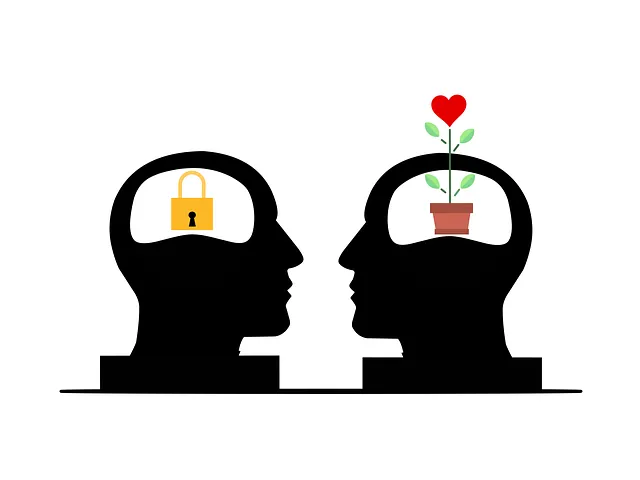Centennial Kaiser Permanente's behavioral health services, highly rated in reviews, prioritize cultural sensitivity for equitable mental healthcare. They address language barriers and cultural differences through interpreters, community support systems, and tailored practices like Mindfulness Meditation. Continuous staff training, open bias discussions, and trauma-informed care ensure patients from diverse backgrounds feel respected and valued. These strategies, highlighted in the behavioral health services reviews, enhance patient engagement and outcomes for everyone.
Cultural sensitivity is a cornerstone of effective mental healthcare, ensuring that services are accessible and tailored to diverse patient needs. This article explores this vital aspect within the context of Kaiser Permanente Behavioral Health Services, examining its commitment to culturally competent care. We delve into the challenges faced in providing equitable mental health support, highlighting specific strategies employed by Centennial Kaiser Permanente behavioral health services reviews to enhance cultural sensitivity. By understanding these practices, healthcare providers can improve patient outcomes and foster inclusive environments.
- Understanding Cultural Sensitivity in Mental Healthcare
- Challenges and Barriers in Providing Culturally Competent Care
- Best Practices and Strategies for Enhancing Cultural Sensitivity at Kaiser Permanente Behavioral Health Services
Understanding Cultural Sensitivity in Mental Healthcare

In the diverse landscape of mental healthcare, cultural sensitivity is a cornerstone that ensures equitable and effective treatment for all. It involves recognizing and respecting the unique values, beliefs, and practices of individuals from different cultural backgrounds, including their traditions, languages, and customs. At organizations like Centennial Kaiser Permanente’s behavioral health services, reviewed highly for its inclusive approach, cultural sensitivity is not just a practice but a foundational principle. Understanding and embracing these differences foster an environment where patients feel heard, understood, and supported in their journey towards recovery.
This awareness extends beyond basic communication to encompass the integration of coping skills development, self-care practices, and conflict resolution techniques that resonate with diverse cultural needs. By adapting these strategies, mental health professionals can help individuals navigate their mental health challenges while preserving their cultural identity. Such a nuanced approach not only enhances therapeutic outcomes but also ensures that care is delivered in a way that respects the dignity and worth of every patient, reflecting the values of progressive healthcare institutions like Centennial Kaiser Permanente.
Challenges and Barriers in Providing Culturally Competent Care

Providing culturally competent care is a complex task within mental healthcare, as it requires understanding and addressing the unique challenges faced by individuals from diverse cultural backgrounds. One significant barrier is the potential for language differences, which can hinder effective communication and accurate diagnosis. At Centennial Kaiser Permanente behavioral health services, reviews highlight the importance of employing qualified interpreters to bridge this gap. Additionally, cultural norms and beliefs often influence how individuals express and perceive mental health issues, leading to potential miscommunications between patients and healthcare providers.
Another challenge lies in ensuring that therapeutic approaches are sensitive to diverse cultural practices and values. For instance, some cultures may prefer community-based support systems over individual therapy, while others might have specific rituals or spiritual practices integral to their emotional healing processes. Incorporating these cultural elements into treatment plans, as emphasized in Inner Strength Development programs, can significantly enhance patient engagement and outcomes. The Mental Wellness Journaling Exercise Guidance is another strategy that, when tailored to respect cultural backgrounds, can encourage self-reflection and personal growth across diverse populations.
Best Practices and Strategies for Enhancing Cultural Sensitivity at Kaiser Permanente Behavioral Health Services

At Kaiser Permanente Behavioral Health Services, enhancing cultural sensitivity is a top priority, reflecting the organization’s commitment to providing inclusive and effective care across diverse communities. Best practices involve continuous training for staff on cultural competence, encouraging open dialogues about unconscious biases, and integrating trauma-informed care principles into every aspect of service delivery. This approach ensures that patients from various backgrounds feel understood and respected.
Implementing strategies such as multicultural team building activities, incorporating patients’ preferred languages in treatment materials, and offering specialized services like Mindfulness Meditation and Trauma Support Services further strengthens cultural sensitivity. Moreover, Risk Management Planning for Mental Health Professionals plays a crucial role in navigating complex ethical and legal issues that arise when addressing cultural differences. By fostering an environment that values and celebrates these variations, Kaiser Permanente Behavioral Health Services aims to deliver exceptional care tailored to each individual’s unique needs.
Cultural sensitivity is a cornerstone of effective mental healthcare, ensuring that services are accessible and beneficial to all. By addressing challenges and adopting best practices, as exemplified by the strategies at Centennial Kaiser Permanente Behavioral Health Services, we can navigate cultural barriers and improve patient outcomes. These efforts not only enhance care quality but also foster trust and satisfaction among diverse populations, reflected in positive Kaiser Permanente behavioral health services reviews. Ultimately, embracing cultural sensitivity is essential for creating inclusive healthcare environments that resonate with every individual’s unique needs.






